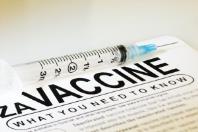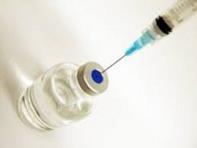|
|
Vaccine Injury Compensation Program
Tuesday, February 1, 2022
 The U.S. Health Resources & Services Administration (HRSA) published year-end statistics for the National Vaccine Injury Compensation Program (VICP) on January 1, 2022. Since the VICP operates on a fiscal year, the 2021 year-end data include claims from the first quarter of FY 2022. In this article, vaccine attorney Leah V. Durant highlights some notable 2021 year-end figures from the program. Read more . . .
Thursday, December 16, 2021
 Children can face various health risks, from diseases such as the flu and chickenpox to physical injuries such as scrapes, bruises and broken bones. We rely on vaccines and health care providers to help protect our children, and we don’t expect getting our children vaccinated or taking our children to the doctor to result in even more harm. Unfortunately, sometimes the unexpected happens. For example, one risk associated with getting vaccinated against the flu – for children and adults – is the risk of contracting Guillain-Barre Syndrome (GBS). While cases of Guillain-Barre Syndrome linked to the flu shot are rare, the link is strong enough for GBS to be listed as an Read more . . .
Sunday, October 10, 2021
 If you are like many people, one of the items on your holiday season to-do list is to get your annual flu shot. Flu activity peaks between December and February, and the U. Read more . . .
Wednesday, June 23, 2021
 For most people, cost is a key factor when it comes to hiring a lawyer. Many people choose not to hire a lawyer because they assume that it will be too expensive. But, while it is true that legal representation can be expensive in some cases, this is not the case when it comes to hiring a vaccine lawyer to pursue a claim under the National Vaccine Injury Compensation Program (VICP). In fact, you can hire a lawyer to handle your Read more . . .
Saturday, May 15, 2021
 The human papillomavirus (HPV) vaccine is one of the many vaccines that the U.S. Centers for Disease Control and Prevention (CDC) recommend for routine administration to children and adults. While the HPV vaccine is generally safe for most people, it carries certain risks, and these risks lead to serious consequences for a very small percentage of Read more . . .
Monday, December 28, 2020
 The annual flu shot: Is it worth it? While federal, state and local health authorities recommend that most people get a flu shot each year, it has also been widely publicized that the flu shot’s vaccine effectiveness (VE) rating has not been particularly high in recent years. After peaking at 60 percent effectiveness during the 2010-2011 flu season, the flu shot’s VE rating dropped to just 19 percent four years later, and it has not been above 50 percent since the 2013-2014 season. Read more . . .
Monday, October 19, 2020
 According to the September 1, 2020 Data & Statistics report from the U.S. Read more . . .
Monday, July 27, 2020
 In the United States, there are two federal agencies that share primary responsibility for ensuring that vaccines are safe for the public. These are the Centers for Disease Control and Prevention (CDC) and the U.S. Food and Drug Administration (FDA). While the CDC provides vaccine recommendations and general oversight with regard to vaccine safety, the FDA is responsible for determining whether individual vaccines should be authorized for use in the United States at all. Read more . . .
Wednesday, July 8, 2020
 For individuals who are allergic to gelatin or egg protein, getting immunized with certain vaccines can carry the risk of anaphylaxis. Anaphylaxis is a severe allergic (or “hypersensitivity”) reaction; and, while it is rare overall, it presents a significant concern for individuals who have these allergies. As a result, prior to getting vaccinated, individuals who have gelatin or egg protein allergies should consult with their physicians to determine whether it is safe to do so. Which Vaccines Contain Gelatin?Gelatin is used as a preservative in various vaccine formulations. For example, gelatin may be present in vaccines including (but not limited to) those used to prevent: Diphtheria, tetanus and pertussis (DTaP) Influenza (nasal spray formulations) Measles, mumps and rubella (MMR) and the separate vaccinations for each of these diseases Rabies Singles Varicella (chickenpox)
Which Vaccines Contain Egg Protein?Egg protein is used in the production of certain vaccines. Read more . . .
Monday, June 8, 2020
 If your child has had an adverse reaction to the flu shot or any other vaccination, there are a few steps you will want to take to ensure your child’s wellbeing and to make sure your family has the financial resources it needs to manage the costs of your child’s illness or injury. Here, national vaccine lawyer Leah V. Durant explains what parents need to know: 1. Seek Medical Attention for Your Child PromptlyAll vaccines have potential side effects; and, for many vaccines, the risk of side effects is particularly high among children. However, in some cases, what appear to be side effects can actually be symptoms of a potentially-serious Read more . . .
Saturday, May 9, 2020
 The Centers for Disease Control and Prevention (CDC) recommend the annual flu shot for most people. According to the CDC’s data, the flu shot prevents millions of recipients from getting influenza each year, and tens of thousands of people avoid influenza-associated hospitalizations as a result of getting vaccinated. Read more . . .
← Back
|
|
|
|